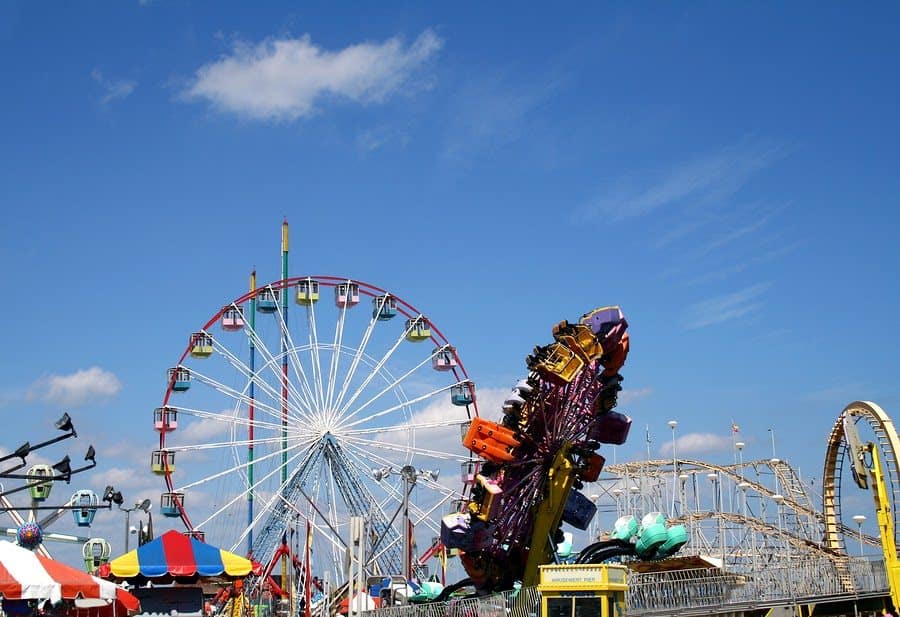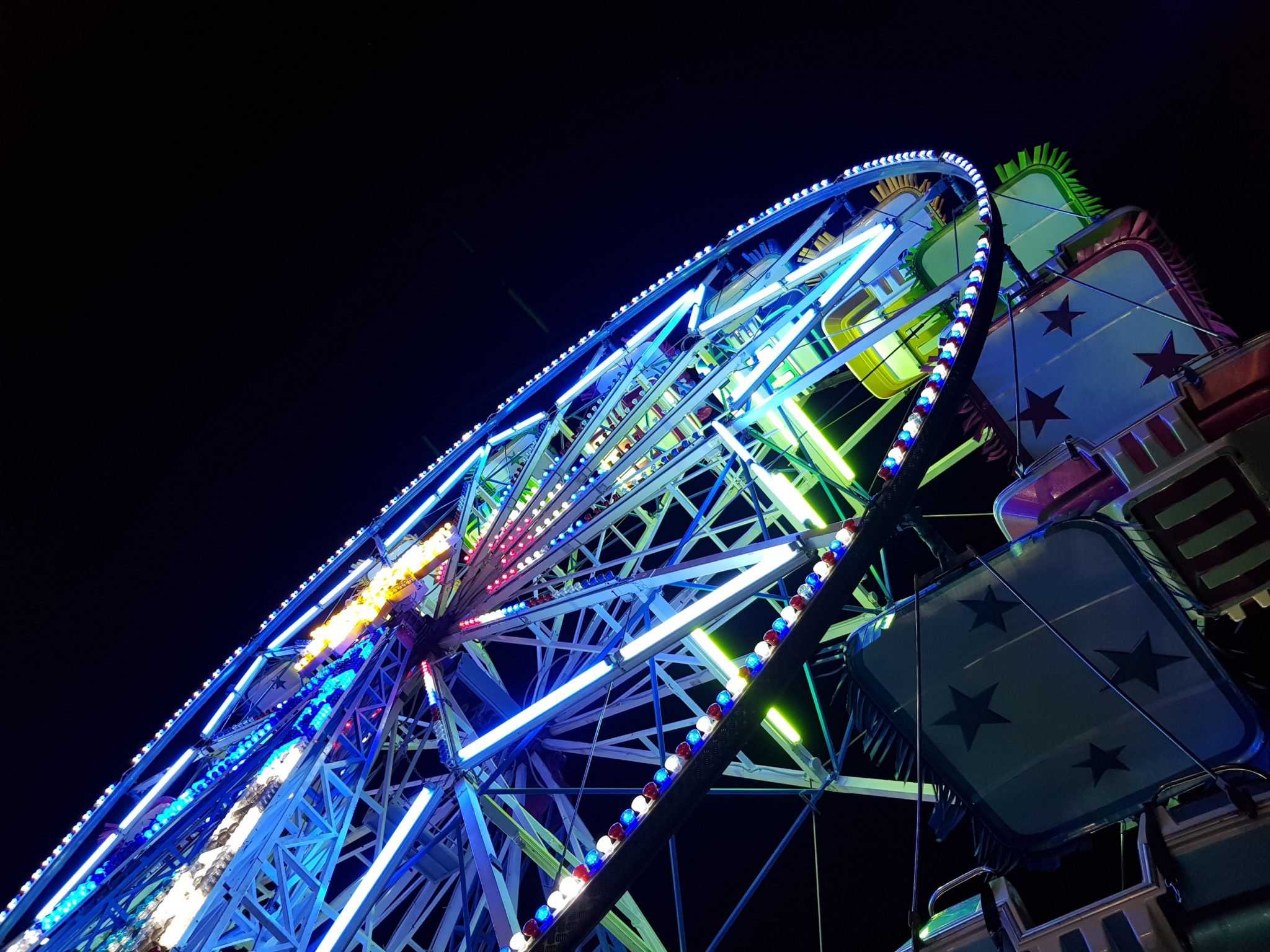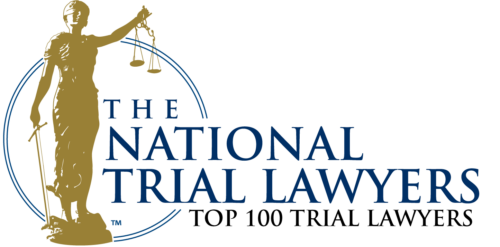A trip to the state fair should be a day filled with happiness and carefree fun. Unfortunately, when a ride malfunctions, a fun day can instantly turn devastating. A tragic scene unfolded at the Ohio State Fair in Columbus after a young man was thrown from a ride and killed. Seven others were injured, leaving three in critical condition. The young man was on an attraction called “The Fire Ball,” described by its operator Amusements of America as an “aggressive thrill ride.” The ride had previously passed multiple inspections, so the accident was a tragedy as well as a mystery.

At this time, no lawsuit has been initiated, but the facts presented pose many interesting legal questions. All the potential defendants in the case are residents of different states and countries, making the choice of where to bring the lawsuit a critical one. If you’re facing a potential personal injury issue, it’s essential to make sure you bring your lawsuit in the court that will bring you the best possible legal outcome. Rules change from state to state and these variations can have a large impact on how your case is decided. Amusement park accidents are devastating, but the experienced Philadelphia personal injury attorneys at The Reiff Law Firm can help you figure out what to do – and where to do it – if you experience a similar incident. Our lawyers have handled a wide variety of accidents and may be available to represent you in an interstate dispute. Call today for a free consultation on your injury case at (215) 709-6940.
Which Court has “Jurisdiction” Over a Case?
The tragedy that occurred in Ohio opens up a dialogue about suits between residents of different states and different countries. Though no suit has been filed yet, the case provides a good framework for a legal hypothetical. Since there are multiple potential defendants with different home states (and even different countries) involved in the accident, an explanation of jurisdiction might be helpful.
What is Personal Jurisdiction?
Personal jurisdiction is the power of a court to call a defendant into court in that state. Under the famous case Pennoyer v. Neff, there are typically three ways to achieve personal jurisdiction and “get to a defendant,” but only one is relevant for our discussion today: in personam jurisdiction. This type of power over a defendant is gained by:
- Consent;
- Presence in the state; or
- Residency in the state.
Since no lawsuit has been filed yet in this case, we’ll discuss the parties in terms of their citizenship/residency.

What is Subject-Matter Jurisdiction?
As you may have guessed, subject-matter jurisdiction is the court’s power to hear a case on a particular type of matter. Federal courts have a much more limited subject-matter jurisdiction than state courts, and cases that make it into federal court generally fall into one of two categories: federal question jurisdiction or diversity jurisdiction. The case at hand does not pose a federal question, so to get into federal court, we’ll need to achieve diversity.
What Is Diversity Jurisdiction? Why is it Important?
Diversity means that parties on either side of the case are from different states. Diversity jurisdiction requires complete diversity. That is—every plaintiff must be diverse from every defendant. In the Ohio accident, every plaintiff shares the home state of Ohio. The potential defendants each have a different residency, including Ohio, New Jersey and the Netherlands. This means that any defendants from Ohio might ruin diversity, since they are from the same state as the plaintiffs. Additionally, diversity cases require an “amount in controversy” (i.e., the amount of money being sued for) to exceed $75,000. Diversity jurisdiction is important because it allows cases that normally would not have the required subject-matter to be heard in federal court.
Could the Plaintiffs Sue Where the Accident Occurred?
To determine if an Ohio court can hear the case, we need to assess whether the court has both subject-matter jurisdiction over the event and personal jurisdiction over each defendant. First, let’s cover personal jurisdiction with regard to each potential defendant.
As previously mentioned, Amusements of America (the ride operator) is a New Jersey based company who provided and operated the Fire Ball ride at the Ohio State Fair. A corporation is legally considered a citizen of both the state in which it was incorporated, and the state where its headquarters is located. Amusements of America is both incorporated and headquartered in New Jersey, making it a citizen of New Jersey.
For a state court’s long-arm statute to reach into another state and pull the party into court, an out-of-state defendant must be found to have had “minimum contacts” with the forum state under International Shoe v. Washington (1945). This requirement is met through a two-part test:
- Purposeful availment, where the party took advantage of being in that state for business or personal reasons. (This prong focuses on the activities of the defendant.); and
- Reasonableness of bringing that party to court in that state. (This prong considers the burden on the defendant, whether the plaintiff’s interest is proper, and the state’s interest in settling the dispute.)
Reasonableness is generally a topic for the court to consider, but we can attempt to assess whether Amusements of America’s activities qualify as purposeful availment. Purposeful availment is defined as some intentional act by a party directed toward the forum state, by which the party takes advantage of the benefits and privileges of the laws of the state.
An Ohio state court would have jurisdiction over the case simply because the accident occurred there. State courts can hear virtually all cases, except for those specifically reserved for federal courts.
The next party to tackle is KMG, the Dutch manufacturer of the Fire Ball ride. Though KMG is a Dutch company, it may still be able to be sued in Ohio. Asahi Metal Industry Co. v. Superior Court set the standard for suing foreign manufacturers. The court held that a foreign corporation was aware that its products could end up in the “stream of commerce” in the state in question. This allowed that state to have jurisdiction over a case dealing with the manufacturer’s faulty product. If KMG could reasonably foresee that its products would end up in Ohio, US law might allow these Ohio State Fair victims to sue KMG in Ohio. On the other hand, if KMG targeting the US in general (not Ohio), this may be inappropriate under McIntyre Machinery v. Nicastro (2011). In that case, the Supreme Court blocked a state from having jurisdiction over a case where a foreign manufacturer sold products into the United States as a whole, without targeting specific states’ “streams of commerce.”
Since the state of Ohio itself is the last potential party (as the group who runs the Ohio State Fair), every defendant can most likely be sued in both Ohio state court and federal court. As long as the amount in controversy exceeded $75,000 the diversity requirements would be met and the case could go to federal court.
Can Ride Injury Victims Sue the Ride Operators in Another State?
As we discussed above, Amusements of America, the ride operator, is a New Jersey corporation. Since they are “at home” in New Jersey, the plaintiffs could potentially travel to New Jersey to sue them there. KMG sold its product directly to Amusements of America I New Jersey, so it may also be subject to a suit in New Jersey. It put its product into the “stream of commerce” in New Jersey by selling the “Fire Ball” to Amusements of America, which is enoughto get jurisdiction under Asahi.
Can the Injury Victims Sue Ride Manufacturers in Another Country?
If Dutch ride manufacturer KMG is possibly responsible for the injuries incurred, they are likely subject to a lawsuit in the US. Under the Federal Rules of Civil Procedure, the plaintiffs injured in Ohio could likely bring the suit in the Netherlands – but the cost of doing so would probably outweigh any real benefit. Since KMG is a resident of another country, they would quality for diversity jurisdiction and allow the case to be brought in U.S. federal court—a much more desirable option. Like jurisdiction itself, this may be proper in a federal court in New Jersey or Ohio.
Contact a Philadelphia Amusement Park Injury Attorney Today
If you or your child was injured at a Pennsylvania amusement park accident, don’t wait to get help. Even if you were injured in another state, the personal injury attorneys at The Reiff Law Firm may be able to their experience handling fair ride accident cases to your benefit. We have the aggressive advocates you need to seek justice and hold third parties accountable for their negligence. We will fight to get you the compensation you deserve. If you have suffered an amusement park injury, call us at (215) 709-6940 or contact us online to schedule your free consultation.
Related Posts
- Can I Get a Pain and Suffering Settlement in Pennsylvania Without a Lawyer?
- What to Do if You Were Injured by a Collapsing Chair
- Can Social Media Be Used Against You in a Car Accident Lawsuit in Pennsylvania?
- Will Medicaid Cover Personal Injury Costs in Pennsylvania?
- Can You Sue a Water Park for an Infection in Pennsylvania?















